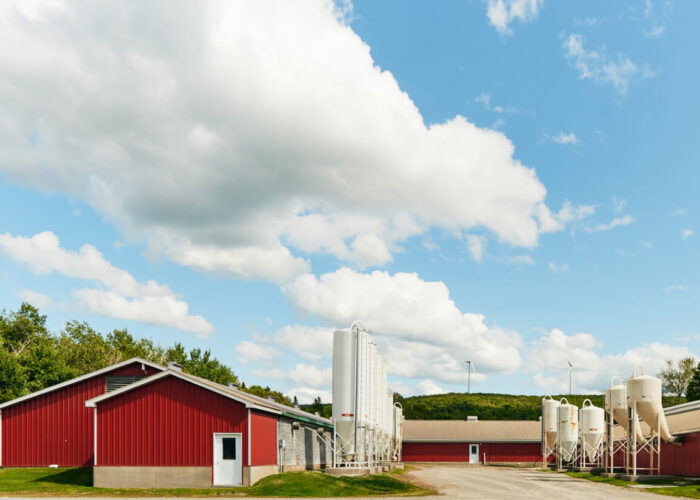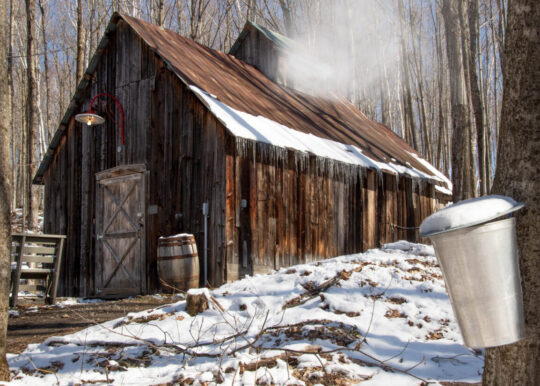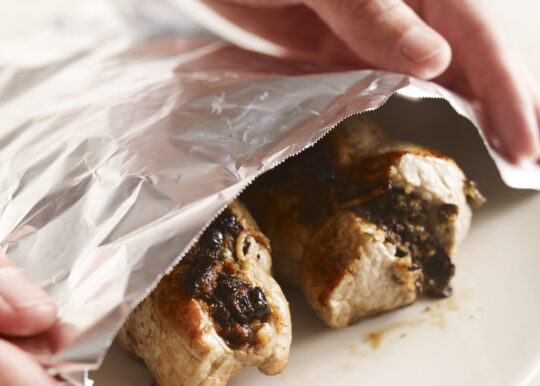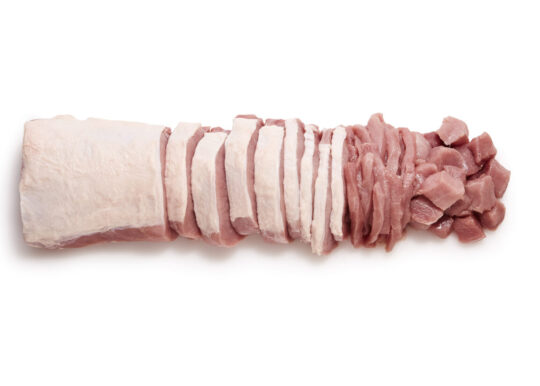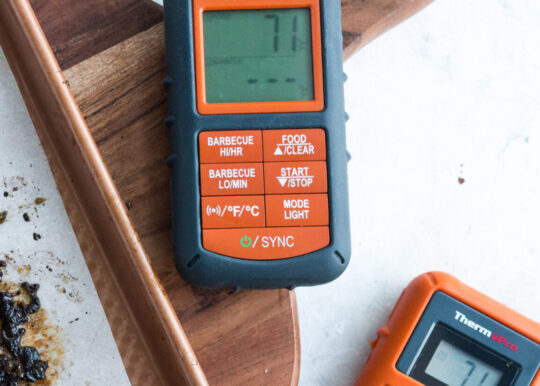When it comes to greenhouse gases (GHGs), it is important to remember that emissions are not only related to farming animals and growing the crops to feed them. You need to consider the entire food production chain, including packaging, transportation and distribution. Quebec pork production has some of the lowest carbon emissions in the world. Pig farming emits significantly less GHGs than other farmed red meat, with 7.6 kg1 of GHG emissions per 100 g of protein compared to beef (50 kg), lamb and mutton (19.9 kg). It is therefore an excellent choice for those wanting to adopt a healthy and responsible diet.
Quebec stands out even more in the pork category, with pork production GHG emissions at an impressive 3.70 kg CO2 eq./kg. This is 25% lower than the average GHG footprint of the top five pork-exporting countries (United States, Germany, Spain, Denmark and Canada) according to the World Food LCA Database 3.5 (WFLDB 3.5, 2020).
Quebec’s good performance is due to variety of reasons. Using hydroelectricity generated in the province is advantageous as it generates very little GHG emissions compared to fossil fuels. Quebec’s climate is also favourable, with the drop in outdoor temperatures meaning a decrease in slurry storage time and reduced associated emissions. Efficient processing practices also make a difference. For example, in some Olymel processing plants, heat released from refrigeration units is reused, eco-friendly ink is used for packaging and steam is used for some operations instead of water tanks.
Plant-based protein sources such as tofu do, in fact, have less of an impact on the environment. However, it’s all about balance. You don’t have to dramatically change your diet to make a difference. Eating vegetable protein such as tofu or legumes along with animal protein such as Quebec pork is also very healthy. Eating locally is also a great way to support the local economy and reduce transportation-related GHGs.
Finally, try to prevent food waste at home—every little thing counts! According to RECYC-QUÉBEC,2 a family wastes an average of 140 kilograms of food annually—about $1,100 worth.
By planning your meals and groceries properly, you’ll save money and help keep our planet healthy.
